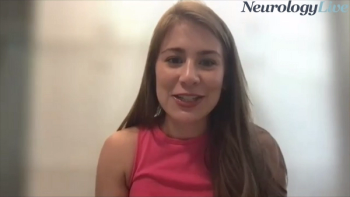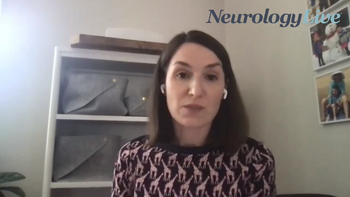
The task force assessed 6 total interventions, all of which received conditional recommendations aside from cognitive behavioral therapy for insomnia, which was strongly recommended.

The task force assessed 6 total interventions, all of which received conditional recommendations aside from cognitive behavioral therapy for insomnia, which was strongly recommended.

The director of the Headache Center of Southern California shared his thoughts on the factors and barriers that go into conducting trials that treat patients with migraine with multiple drugs.

Results from the START study of medication switching in narcolepsy were presented at the 2021 SLEEP Annual Meeting.

The director of the Sleep-Wake Disorders Center at Montefiore Medical Center discussed the formulaic background of FT218 and why it’s so effective in treating sleep disorders.

When paired with the Percept PC device, SenSight expands on BrainSense technology, enabling clinicians to capture and record enhanced, directional local field potential information from the implanted lead.

Neurology News Network for the week ending June 12, 2021.

Take 5 minutes to catch up on NeurologyLive's highlights from the week ending June 11, 2021.

The medical director of the Westport Headache Institute shared her insight into the use of the e-TNS device and the role of neuromodulation in migraine.

The FDA-approved agent demonstrated meaningful reduction in the frequency of cataplexy attacks in adults with narcolepsy, including patients with a high symptom burden.

Alzheimer disease experts Richard S. Isaacson, MD, and Marc E. Agronin, MD, discuss the recent aducanumab approval and some of the clinical community's concerns.

The nurse practitioner at the Woodruff School of Nursing at Emory University detailed why advanced practice clinicians should be utilized more in neurology settings.

"Mind Moments," a podcast from NeurologyLive, brings you an exclusive look into the FDA approval of aducanumab (Aduhelm; Biogen) for the treatment of Alzheimer disease.

Data presented at SLEEP 2021 also showed the treatment was associated with significant weight loss and reduction in BMI compared to placebo.

The HINE-2 motor milestone total score in those treated with nusinersen increased steadily from a baseline mean of 1.46 to 11.86 at day 1135, representing a clinically significant change of 10.43 points.

The program director of the Medstar Georgetown University Hospital Headache Medicine Fellowship program discussed further research to be conducted with the nasal delivery of DHE.

The findings support previous data that showed no differences between telemedicine and traditional consultations in HIT-6 assessment scores over a long-term period.

The director for the Montefiore Headache Center discussed the COURAGE study and how to effectively use a layered treatment approach with ubrogepant and CGRP monoclonal antibodies.

For patients treated with pimavanserin in investigational doses of 8.5 mg or 17 mg in the previous studies, further improvement was observed during the open-label extension with 34-mg pimavanserin.

A post-hoc analysis of the phase 2/3 trial of rimegepant revealed early and sustained efficacy compared to placebo, with significant reductions in weekly migraine days.

The program director of the Medstar Georgetown University Hospital Headache Medicine Fellowship program discussed the advantages of INP104 over other forms of dihydroergotamine.

Investigators conducted a 9-month study that demonstrated the correlation of the MBI, calculated as the sum of headache days times the maximum intensity of headache on each headache day, with satisfaction of migraine status.

Researchers used a connected network of studies that were generally well balanced in terms of key baseline characteristics, such as baseline MMD and use of prior therapies, to compare preventive treatments.

Ian Kremer, executive director of the LEAD Coalition, discusses the need for improved access to social services surrounding the diagnosis and management of Alzheimer disease.

The director for the Headache Center of Southern California discussed his research presented at AHS 2021 which evaluated a combination of onabotunlinumtoxinA and CGRPs in patients with chronic migraine.

Recent data presented at the AHS annual meeting showed clinically meaningful improvements in MMD and MHD in patients with both chronic and episodic migraine.

A post-hoc analysis of 4 clinical trials of galcanezumab found no differences between dose groups of galcanezumab or placebo in rates of ‘wearing off’ effect.

The director of the Headache Center of Southern California provided insight on how a layered treatment approach to chronic migraine can be directly implemented into clinical care.

Experts in the treatment and management of patients with Alzheimer disease and dementia, including Marwan Sabbagh, MD; Lon Schneider, MD, MS; Anton Porsteinsson, MD; and Robert Howard, MD, MRCPsych, weigh in on the FDA's controversial approval of Biogen's anti-amyloid drug, aducanumab.

The director of the Montefiore Headache Center detailed the ways the Migraine Buddy app can help simplify conducting migraine clinical trials while expanding the reach of patients.

Absence of photophobia, phonophobia, and nausea were achieved in a similar percentage of perimenstrual and non-perimenstrual ubrogepant-treated attacks.